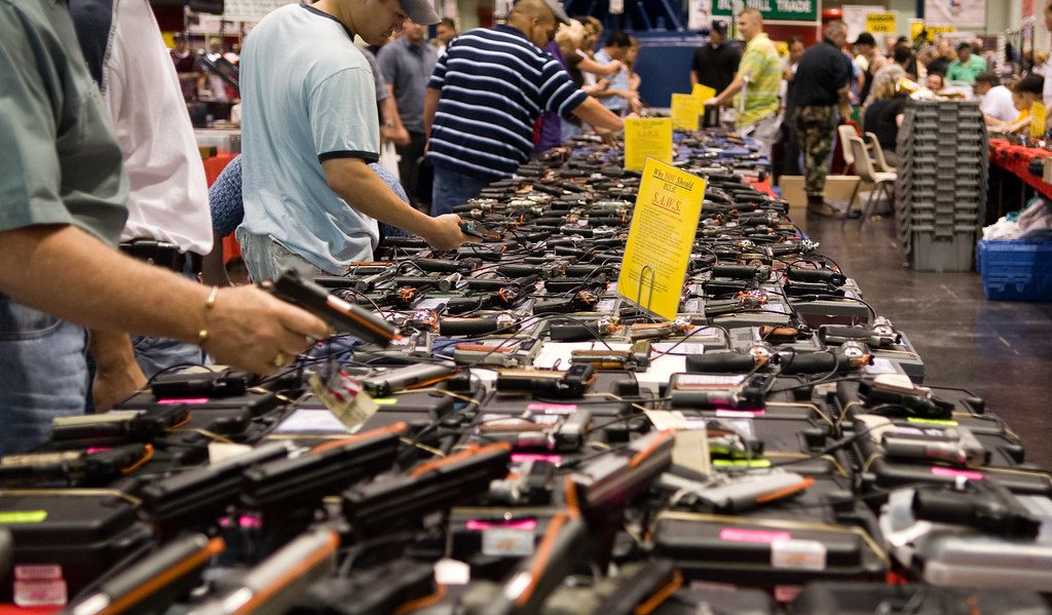Benjamin Franklin famously said that in this world nothing can be said to be certain, except death and taxes. If the Ninth Circuit Court of Appeals had been around in the 18th century I'm pretty sure that Franklin would have added another certainty to his short list: death, taxes, and the Ninth Circuit's unwillingness to overturn any gun control law.
The appeals court has once again defied logic and the clear text of the Second Amendment in order to uphold California's ban on gun shows on state property. Despite a district court's injunction against the ban because of the likelihood that it violated both the First and Second Amendment, a three-judge panel on the Ninth Circuit has held that the ban doesn't implicate either of those inherent rights.
In doing so, the panel twisted both amendments beyond recognition. The ban on gun shows on state property doesn't implicate speech, according to the judges, because it only prohibits "accepting an offer to sell firearms or ammunition on state property." In other words, gun dealers are technically free and clear to have booths at a gun show, and can even offer firearms for sale. They just can't accept any offer from a buyer.
B&L argues that even if the Challenged Statutes do not directly regulate protected speech, they indirectly implicate the First Amendment by jeopardizing the pro-gun speech that occurs at gun shows. B&L emphasizes that at gun shows, “[o]rganizations share information, speakers give lectures, trainers hold classes, and patrons discuss gun rights,” and “[c]andidates for office even attend to discuss politics, government, and law with their constituents.” On their face, the Challenged Statutes do not restrict any of those forms of speech. A “celebration of America’s ‘gun culture,’” in the words of one of B&L’s briefs, can still take place on state property, as long as that celebration does not involve contracts for the sale of guns. B&L nevertheless argues that gun shows “will disappear” “[w]ithout the anchor of commerce in firearms,” so a restriction on the latter inherently infringes on gun-related speech. It notes that “[m]any (maybe most) of the people who attend gun shows are there to engage in commerce with experienced firearm retailers,” but that “[i]f licensed retailers cannot lawfully sell their products at these events, there is little financial incentive for [those retailers] to attend.”
Oh well, the panel concluded, stating that regulations that do not directly regulate expressive activity are only scrutinized if they have “the inevitable effect of ‘singling out those engaged in expressive activity.’”
That's exactly what's happening with California's ban on gun shows on state property. The ban most certainly has the inevitable effect of singling out those engaged in expressive activity in support of their Second Amendment rights. That may be the single biggest reason behind the ban; to prevent gun owners from gathering together in support of their right to keep, bear, and yes, to acquire a firearm.
In rejecting the Second Amendment claims against California's ban on gun shows/sales on state property, the panel was aided by the plethora of previous anti-gun decisions handed down by the Ninth Circuit. The appellate court has already held, for instance, that while there is some right to acquire a firearm encompassed by the Second Amendment, there's no constitutional right to sell a gun, and the locations where sales can take place can be limited almost entirely... so long as the court believes the limited right to acquire has not been residents substantially impeded.
B&L essentially concedes that the Challenged Statutes do not “meaningfully constrain” the right to keep and bear arms. It makes no allegation that a ban on sales on state property would impair a single individual from keeping and bearing firearms, even after having an opportunity to amend its complaint to add one. B&L’s implicit concession is unsurprising, as the record suggests that no individual’s access to firearms would be limited. For instance, there are six licensed firearm dealers in the same zip code as the Orange County Fairgrounds. Merely eliminating one environment where individuals may purchase guns does not constitute a meaningful constraint on Second Amendment rights when they can acquire the same firearms down the street.
And if folks in Orange County have six gun dealers to choose from, then what is the purpose of California's ban on gun sales on state property? The Ninth Circuit says it doesn't meaningfully constrain anyone from purchasing a firearm, but that was the apparent reason why the legislature imposed the ban to begin with; to make it harder for residents to obtain one.
I can't say I'm surprised by the panel's decision today, though I'm continually amazed at the new and creative ways the Ninth Circuit finds to infringe on our right to keep and bear arms. Today's decision doesn't make California any safer, just less free.









